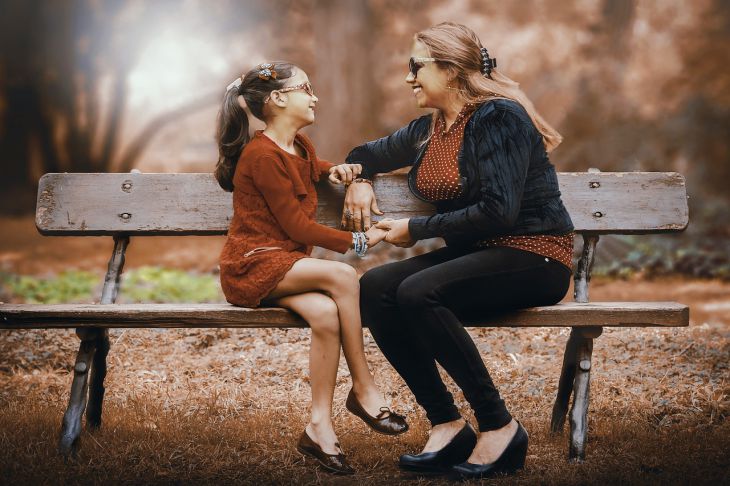Our basic settings, attitudes towards the world and people are formed in childhood.
Psychologist Valery Gut told how to communicate with a child correctly.
Doctor of Biological Sciences, Russian scientist in the field of neuroscience Tatyana Chernigovskaya describes this period as the most important in a person’s life: it is at this time that all the main neural connections are established.

From an early age, personality is formed largely under the influence of communication with parents and significant adults.
The quality of interaction with them determines a person's attitude towards themselves in adulthood. Understanding this, we can build communication with our children so that they feel supported and trust us.
Soviet psychologist Lev Semenovich Vygotsky proved that the source of mental development is not within the child, but in his relationships with adults.
An adult's responsiveness and empathy make it easier to understand social norms. As a result, the child develops appropriate behavior and it is easier for him to adapt to society.
At the same time, an adult does not confront the child, does not restructure his nature. Communicating with the child, he helps him develop.
Soviet psychologist, Doctor of Psychology, Professor Maya Ivanovna Lisina was one of the first in psychological science to approach the study of communication as a special form of communication, the need for which arises at about 2.5 years of a child's life and should be supported by an adult: children value the attitude of others, this is where the child's self-esteem lies.
This criterion should be taken into account when building interactions with children.
Be attentive and show interest
Starting from 2-3 years old, children actively communicate, ask questions, are interested in everything that comes their way. If at this moment adults are involved in the child's life, devote time to communication, he feels free.
Ignoring this need, for example due to being very busy, can lead to the child becoming withdrawn.
Strive for mutual understanding and respect feelings
Try not to devalue children's experiences and not to brush them off when a child comes with some "unsolvable" problem. Develop in the child the understanding that home and family are the place where they can get support, no matter what happens.
Show interest
At different ages, children attract adults' attention in their own way. It is important for us to show interest in what they are doing, to sincerely ask questions not only about how they are doing at school, but also about what they play, who they like to spend time with, and so on.
The more information an adult receives from a child during communication, the closer the emotional connection between them.
To criticize an action, to praise a person
In our culture, it is common to evaluate a person, which can become a hindering force in a child's development. When we evaluate an action, not a person, we help build internal supports.
Give the opportunity to try yourself in different directions
You shouldn't make your child an extension of yourself. Better try to see him as a separate person with his own interests, give him the opportunity to find his own path.
Communicate as equals
Children start feeling like adults very early and don't like being "coddled". This puts them one step lower. However, if (taking into account the age) you communicate as equals, take into account the opinion and desires of the child, then he will know that he is important as a person.
A striking example of proper interaction with children can be the character Mary Poppins. How she spoke to her charges:
- always listened to what they said;
- spoke to them in an adult manner, but satisfying their children's curiosity;
- she also openly communicated her feelings;
- I never evaluated personality, only actions;
- always found time for conversation.
Children need communication with adults when they learn about this world, when they need help, when their personality is formed.
"All adults were children at first, but few of them remember it," wrote Antoine de Saint-Exupéry. Communication should include both authority and friendship - after all, children learn communication and trust from us.
